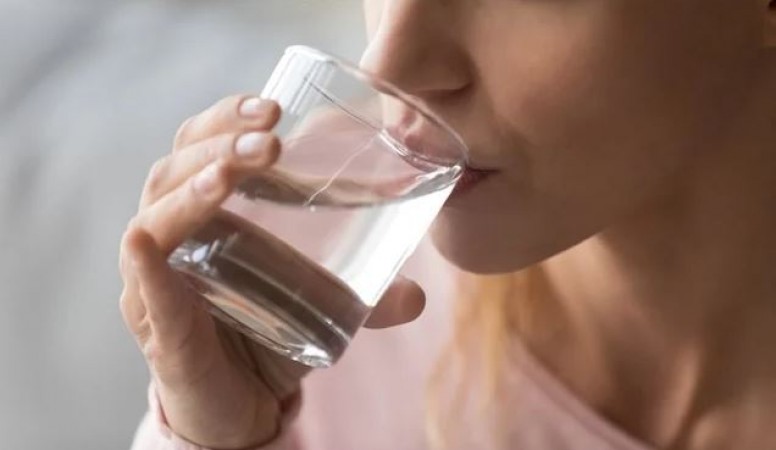
Water is the essence of life, a fundamental component that (how to dehydration remedies) sustains our bodies and enables countless physiological processes to occur seamlessly. Yet, despite its undeniable significance, many people underestimate the importance of staying adequately hydrated. Dehydration occurs when the body loses more fluids than it takes in, disrupting its delicate balance and potentially leading to a cascade of detrimental effects. This article delves into the symptoms of dehydration, emphasizing the (how to dehydration remedies) crucial need for timely intervention to prevent complications.
Understanding Dehydration
Dehydration is not merely a sensation of thirst; it encompasses a range of symptoms that indicate the body's insufficient water levels. Our bodies rely on water for myriad functions, including temperature regulation, digestion, waste elimination, and the transportation of nutrients. Even a slight reduction in water intake can disrupt these processes, setting the stage for various health issues.
Symptoms of Dehydration
Thirst: The body's first signal that it requires more fluids is the sensation of thirst. While it's a natural response, relying solely on thirst as an indicator of dehydration can be misleading. By the time thirst kicks in, the body might already be experiencing a mild level of dehydration.
Dark Urine: Urine color is a reliable indicator of hydration levels. Dark yellow or amber urine suggests concentrated waste products due to a lack of water. In a well-hydrated individual, urine tends to be light yellow or pale straw in color.
Dry Mouth and Bad Breath: Insufficient water intake reduces saliva production, leading to a dry mouth and potentially causing bad breath. Saliva not only aids in digestion but also helps maintain oral health.
Fatigue and Weakness: Dehydration can lead to a decrease in blood volume, which in turn affects the supply of oxygen and nutrients to cells. This can result in feelings of fatigue, weakness, and reduced energy levels.
Dizziness and Lightheadedness: Inadequate fluid levels can affect blood pressure and circulation, leading to dizziness and lightheadedness, especially upon standing up quickly.
Headaches: The brain is highly sensitive to changes in hydration status. Dehydration can trigger headaches as a result of reduced blood flow and oxygen supply to the brain.
Dry Skin: Water is vital for maintaining skin elasticity and hydration. Dehydration can lead to dry, flaky skin and an increased susceptibility to skin issues.
Rapid Heartbeat and Rapid Breathing: Dehydration can prompt the heart to work harder to circulate a reduced volume of blood. This can lead to a rapid heartbeat and an increased respiratory rate.
Muscle Cramps: Electrolyte imbalances resulting from dehydration can cause muscle cramps, as electrolytes like sodium, potassium, and magnesium play a crucial role in muscle function.
Reduced Urination: Infrequent urination or a significantly decreased urine output may indicate dehydration. Adequate hydration supports healthy kidney function and waste elimination.
Sunken Eyes and Hollow Cheeks: Dehydration can cause the tissues around the eyes and cheeks to appear sunken due to reduced fluid levels.
Preventing Dehydration
The importance of preventing dehydration cannot be overstated. It's far easier to maintain proper hydration than to address the consequences of neglecting it. Here are some strategies to stay adequately hydrated:
Drink Water Regularly: Make a conscious effort to drink water throughout the day, even if you're not feeling particularly thirsty. Keep a reusable water bottle handy as a visual reminder.
Monitor Urine Color: Use the color of your urine as a hydration gauge. Aim for pale yellow or straw-colored urine, indicating adequate hydration.
Hydrating Foods: Incorporate water-rich foods like fruits (watermelon, cucumber, oranges) and vegetables (cucumber, lettuce, celery) into your diet.
Avoid Excessive Diuretics: Limit the intake of diuretic substances like caffeine and alcohol, which can increase fluid loss.
Hydrate Before, During, and After Exercise: Physical activity increases fluid loss through sweat. Drink water before, during, and after exercise to maintain hydration.
Pay Attention to Weather: Hot and humid weather can lead to increased sweating, accelerating fluid loss. Be especially vigilant about hydration during such conditions.
Stay Hydrated When Ill: Illnesses that involve fever, vomiting, or diarrhea can lead to rapid dehydration. Increase fluid intake to compensate for fluid loss.
Staying hydrated is not a choice but a fundamental necessity for maintaining optimal health and well-being. Dehydration can manifest in various symptoms, ranging from mild discomfort to severe complications. Recognizing these signs and understanding the importance of regular hydration is essential for preventing potential health issues. By making hydration a priority in our (how to dehydration remedies) daily lives, we can ensure that our bodies function at their best and minimize the risks associated with dehydration.
Global Summit on Traditional Drugs: Bridging Ancient and Modern Practices, says Mandaviya
Embrace Besan: 5 Creative Ways to Boost Your Diabetes Diet
Is Chicken Good For Diabetics? Exploring the Diabetes-Friendly Benefits of Chicken Consumption